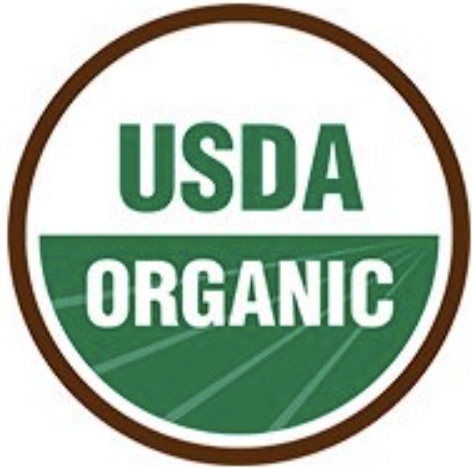
11) Is Organic Certification All It's Cracked Up To Be?
Share
[Originally published September 2020]
Fifteen or twenty years ago, the Union of Concerned Scientists (1) listed the top seven responsible actions consumers could take to have the greatest positive impacts on the environment. Among those was to buy organic products. Their message was not to consider this for one’s own health (at the time there was limited science in that area), but instead to support sustainable production methods that were less detrimental to land and ecosystems than the harsh exploitation and degradation of resources associated with conventional industrial farming systems.
Around the same time, my family considered “going organic” with our own farming practices (just beef at the time, still not grass-fed), without knowing exactly what that meant. We didn’t expect to get more money for our meat (because we didn’t sell our meat directly back then), but it just seemed the right thing to do.
Whoah, Nellie! First off, it appeared prohibitively expensive to become certified (that sounded a bit fishy to me: why should taking BETTER care of humanity's shared resources COST our family more money on top of the other financial and nonfinancial costs we would necessarily face?). Then, we learned the rules in the new “certified organic” industry required that we just let a baby beef calf die, rather than treat it with antibiotics and heal its illness (just like we might treat our own children with antibiotics when necessary). That seemed inhumane to us, and we determined being a part of that industry did NOT reflect our farm’s values.
It seems that when the larger, conventional agriculture industry realized the "organic" movement wasn't going away, and in fact was taking business from them, even with higher priced products, they had determined to take advantage of the growing market. After the industry began lobbying in their own favor, certification programs were created and methods were approved that we and other local sustainable ag proponents consider questionable, at the least.
For example, the list of SYNTHETIC substances (5) allowed for use in organic crop production is quite lengthy. Much of these we'd never choose to apply in our farm operations. As well, that antibiotics question – now they've reworked it so that it's allowed to use antibiotics to save the life of an animal, but then that animal must be quarantined and its meat not sold with others, even though the antibiotic is long gone from its system and it's healthy and happy and becomes grass-fed beef or pork. (Don't get me started on the whole antibiotics issue – I’ll have to write a whole other blog on that!)
Still reaching toward sustainability for our farm's future, we began studying a global movement of graziers (folks who raise animals on pasture) focusing on the health both of animals and of the environment, and valuing soil health and pollinator support, as well as compassionate husbandry, and we joined in, heartily. (2, 3, 4)
Alex is fond of describing our protocols (6) as "beyond organic" because we choose to actually follow the health and sustainability protocols of the graziers' movement, and these are much more exacting and require more research, skill, financial commitment, and general discipline and tenacity.
Rather than pay thousands of dollars for organic certification to be renewed each year for our meat, we choose instead to buy new seed for our pastures to maintain or increase biodiversity, thereby improving soil health, which results in a healthier ecosystem with healthier animals living in it. We choose to pay for more and better fencing, and its maintenance, to keep our animals moving through pastures as they evolved to do. We choose to pay more for a healthier diet for our pastured chickens and pigs by avoiding corn or soy products, which are allowed under organic standards (as long as the crops are certified to be grown "organically"). We choose not to feed any grain to our cattle, which is allowed under organic certification (again, as long as it's certified organic). And we choose not to broadcast herbicides (this is just not a sustainable practice), even though the list of those allowed under organic certification is quite lengthy. (7)
In my thinking, Alex's "beyond organic" is really better described as "biological" (as opposed to "chemical"). France recognizes the difference between conventional agriculture that employs synthesized chemical inputs, and that which recognizes the broader ecosystem's operation and how life in the soil ("microbiota") is critical to the health of plants and of the animals who eat them. Rather than "organic," in France, one speaks of "agriculture biologique" (8) and this method of farming is generally perceived to be more "natural," sustainable, and technologically wise than the mere "organic" method. I don't know about that, but choosing biological agriculture over synthesized chemicals seems a no-brainer to me, and I'll share the awesome intricacies and delights of life underground in a future blog on soil health.
We've discovered that often, your local farmer (who probably can't afford organic certification) recognizes his practices are available for your review, and cares about producing healthy food while treating animals compassionately and maintaining local ecosystem integrity on a farm. So, in the end, buying from that local farmer (and visiting his/her operation!) may be a better choice for protecting the future of our shared environment than just mindlessly purchasing anything labeled "organic" at the big chain groceries. . . . . To learn more about such earth-friendly food choices, check out these links:
https://www.nourishknoxville.org/
https://www.localfarmmarkets.org/
https://www.picktnproducts.org/
https://www.ams.usda.gov/local-food-directories/onfarm
Thanks for your interest in sustainable ag; please visit us or write me at shannon@lickskillet.farm to learn more. Ethical and health-conscious shopping is laborious and most of us are throwing our hands up in confusion. Watch for a future blog in which we explain what labels really mean to you.

2. https://grassfedexchange.com/
3. https://sustainableagriculture.net/
6. https://lickskillet.farm/protocols
